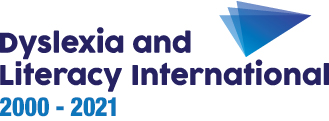Medical checks
If you notice that a child is having obvious difficulties with hearing, seeing and physical coordination, you should immediately ask the parents or guardians to have the necessary medical checks made.
It is vital to establish that sensory weakness such as glue ear (a history of ear infections such as Otitis media), poor eyesight or any other physiological condition are not the main cause of the child’s difficulties with reading and writing.
(For more information on glue ear and its relationships with dyslexia in some cases, see Dr. Lindsay Peer’s online article or her book entitled ‘Glue ear’).
Dyslexia – a cluster of difficulties which is not easy to identify
The reason why dyslexia is not easy to identify is that, as mentioned in Section 1, it ‘is not a single category but a disorder found within a spectrum of deficits’ (Professor Snowling). Hence, it will manifest itself in different ways and to different degrees in different people. Moreover, its manifestations will differ across languages.
As UK International Consultant, Dr. Ian Smythe writes,
‘Dyslexia may be caused by a combination of phonological, visual and auditory processing deficits, as well as word retrieval and speed of processing difficulties … The manifestation of dyslexia will depend upon not only individual cognitive differences, but also the language used.’ (Our emphasis)
Dr. Ian Smythe
Dr Steve Chinn, expert in dyscalculia and dyslexia and former head of a specialised school for children with dyslexia, mentions a cluster of signs of dyslexia to look out for in his interview in the BBC film Language Shock – Dyslexia across cultures :
‘Dyslexia means a difficulty with language – words and letters – so that the most obvious and persistent difficulties you will see will be with reading and writing, and very intractable difficulties with spelling, also with memory, especially sequences such as the days of the week and the months of the year. Personal organization will be poor in almost every circumstance.’
Dr Steve Chinn
Some difficulties with reading and writing may be purely developmental or due to causes other than dyslexia. But in identifying dyslexia you as a classroom teacher should understand the difficulties in reading, writing and spelling compounded by weak short-term memory and poor organisational skills.
It is the combination, frequency and persistence of these characteristics, as well as the pointers and common mistakes detailed in the next part, which should alert you to the possibility that a child might have dyslexia.
In all cases, one of the major indicators of dyslexia is that when the child starts to read and write his or her verbal skills seem to be superior to his or her reading and writing skills. More often than not, the reading and writing abilities of children with dyslexia will end up being one to two-and-a-half years behind the ones of their peers without dyslexia.


